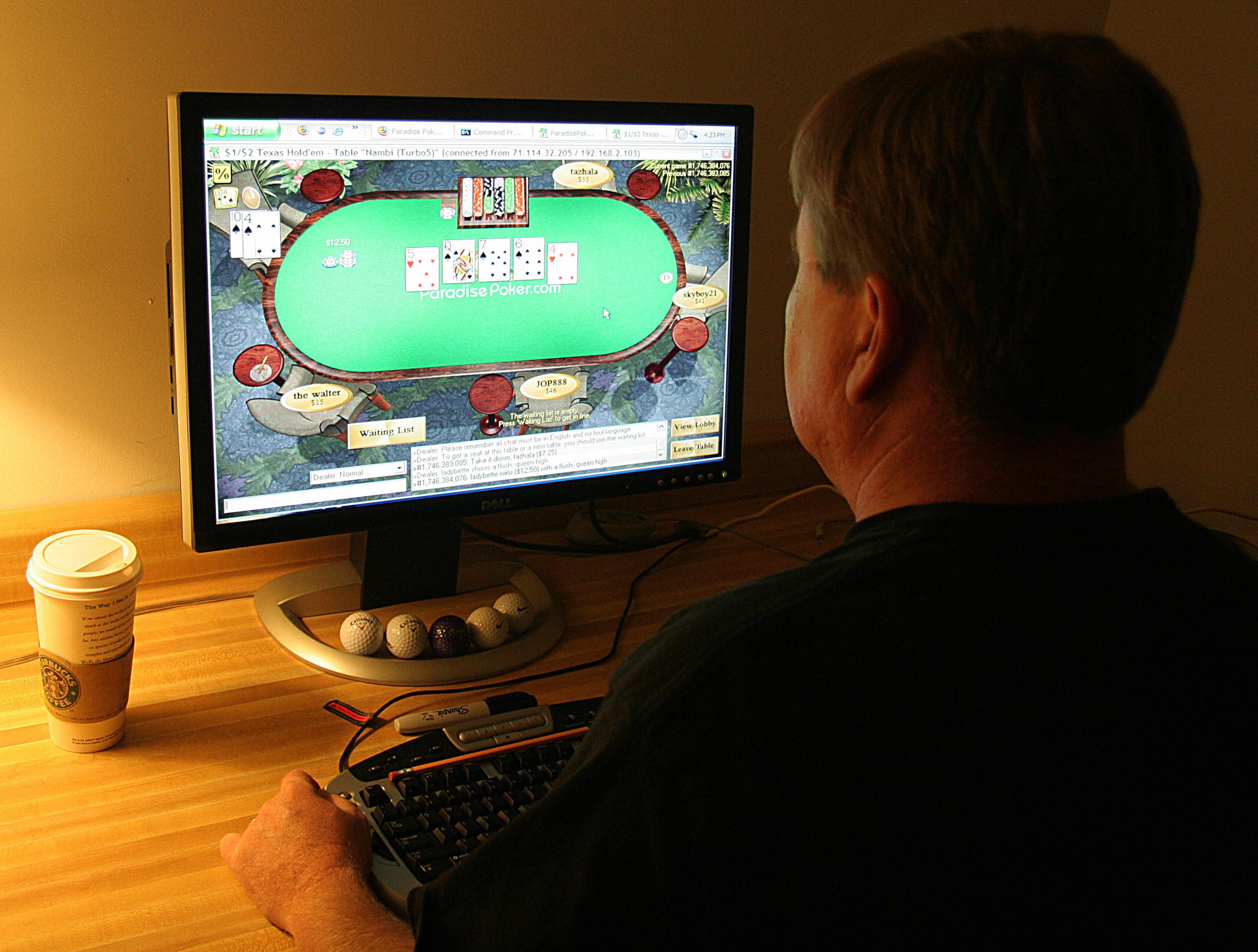Crime is Slate’s crime blog. Like us on Facebook, and follow us on Twitter @slatecrime.
At the end of April, a website called UltimatePoker.com opened for business, bringing online real-money poker back to the United States—or, at least, to the state of Nevada—for the first time since 2011, when the Department of Justice effectively shuttered the few poker sites that still operated within American borders. Ultimate Poker, which bills itself as “America’s first and only regulated online real money poker site,” has made a point of noting that it is a legitimate business, and that, unlike some of its predecessor sites, it will not abruptly shut down and run away with your money. But less than two weeks after Ultimate Poker launched, a five-year-old online poker scandal reemerged to remind us all why many in the government found the industry so shady in the first place.
Let me back up. After a doughy amateur poker player named Chris Moneymaker won the World Series of Poker in 2003, poker—specifically, Texas Hold ‘Em poker—surged in popularity. A variety of online real-money poker sites rode this wave to profits and prominence. Various gaming commissions—some run by Indian tribes, some in the Caribbean and Central America; none affiliated with U.S. state gaming commissions—were supposed to be verifying that the games these sites offered were fair and honest, but you got the sense that they weren’t looking very hard. (A 2008 Washington Post article noted that the three-member Kahnawake Gaming Commission, the licensing and regulatory body of a “Mohawk tribe that has no background in casino gambling and does not answer to federal or provincial regulators,” licensed “450 sites run by 60 permit holders.”)
In 2008, this point was underscored when, acting on complaints from disgruntled players who couldn’t figure out why they kept on losing, investigators found that Russ Hamilton, a former poker champion and consultant to the prominent, Costa Rica-based and Kahnawake-licensed, online poker site Ultimatebet.com, had cheated players out of millions of dollars with the help of “God mode” software that let him peek at other players’ hands. The scandal ruined Hamilton’s reputation, and Ultimate Bet officials rushed to assure people that Hamilton had been acting alone.
Just over two weeks ago, a former Ultimate Bet employee named Travis Makar posted to an online poker forum secret recordings showing that the scandal was bigger than originally imagined. The recordings do confirm that Hamilton was the primary actor. On them, he bluntly says that “I did take this money and I’m not trying to make it right, so let’s get that out of the way.”
But the tapes also indicate that other Ultimate Bet officials knew about the scheme. Ultimate Bet founder Greg Pierson, for instance, is heard on the tape talking about ways to contain and cover up the scandal. Pierson now runs an online security company called Iovation, and, as poker writer John Mehaffey noted, “The tapes imply that Iovation may have even been founded and floated with money stolen in the cheating scandal by Hamilton and others. Iovation was Ultimate Bet’s software company and provided Hamilton and others with the ability to see player’s hole cards in real time.”
And this is where it gets knotty for new entrant Ultimate Poker. When Ultimate Poker launched this April, it was using Iovation’s software to help verify players’ identities. The site quickly dumped Iovation as soon as the Makar tapes were made public. But there’s absolutely no excuse for using Iovation in the first place, given that its co-founder, Pierson, appears to have been complicit in one of the biggest online gambling scandals of all time. Ultimate Poker claims that its games are wholly legitimate. And, most likely, they are. But how can you know for sure?
Here’s the dilemma. Nobody would accept it if an online poker room said: “Our games are fair and honest. Trust us.” So these sites outsource their verification to supposedly neutral third-party services, such as Iovation. But as far as I can tell, there is limited oversight of these third-party services; Iovation wasn’t even licensed by the Nevada Gaming Control Board. “What we’ve already seen just with poker is that if people know the environment they are gambling in is safe and secure, they get more excited about doing it,” Ultimate Poker chairman Tom Breitling told Yahoo soon after launch. But we don’t know that. And as long as these sites’ security is outsourced to shady actors, we never will.
